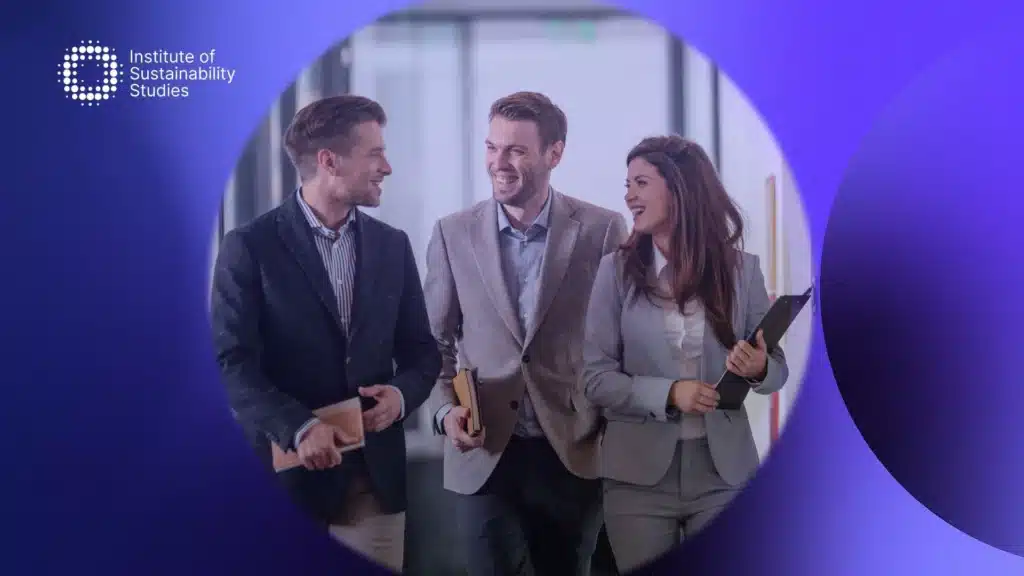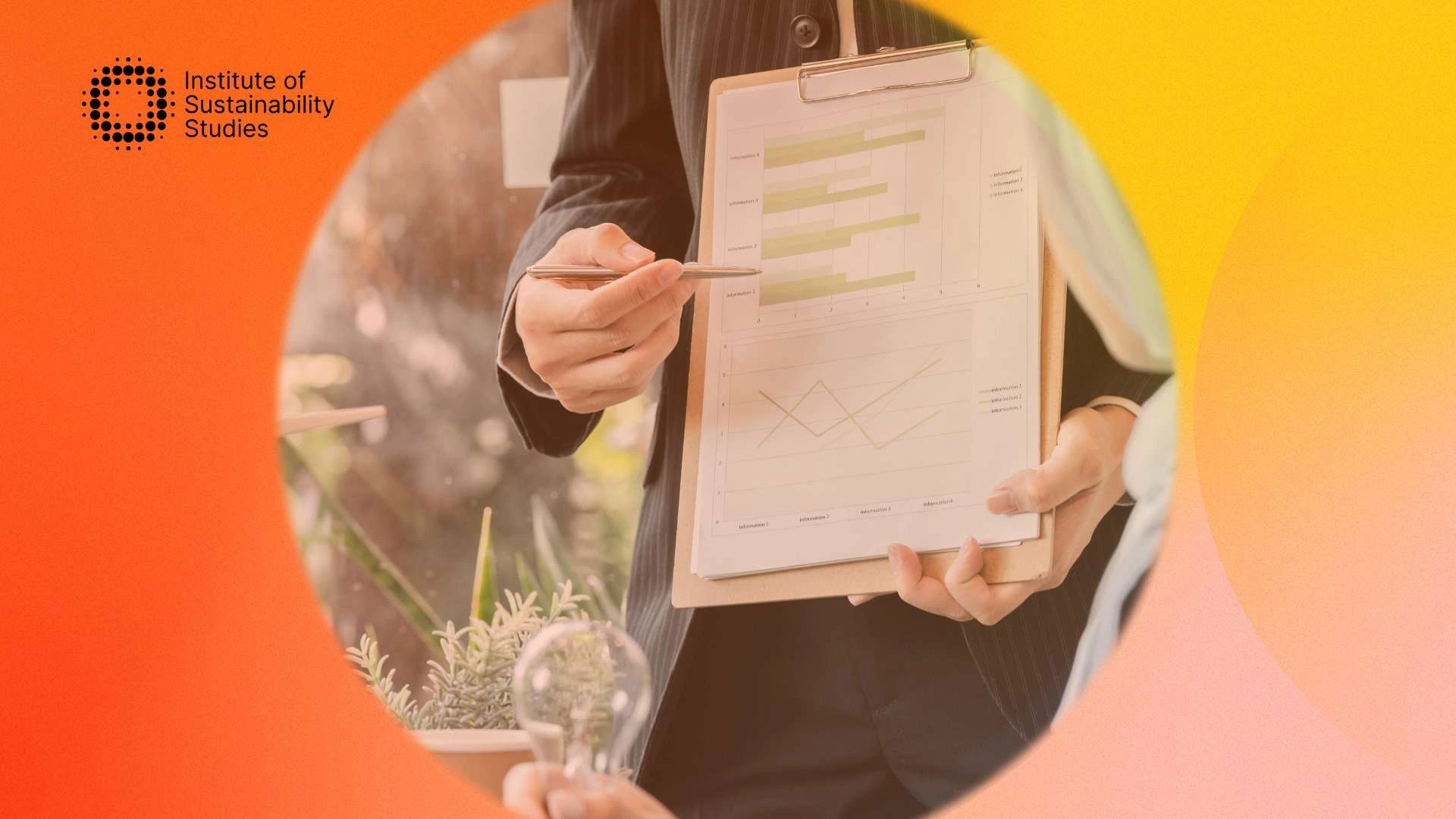Embedding sustainability in organisational culture is fundamental to how organisations create value, build resilience, and meet stakeholder expectations. As business models evolve in response to global challenges, effective business sustainability strategies must go beyond reporting frameworks or individual initiatives.
They require people-led transformation at every level of the organisation. The real driver of long-term sustainability impact isn’t a single role or team; it’s a shift in organisational culture. A culture where employees across all functions and seniorities understand sustainability, feel ownership of their role in it, and act accordingly.
From strategy to culture: Where change really happens
To meet today’s global sustainability challenges, the corporate world needs more than a few Chief Sustainability Officers. It needs a workforce empowered to integrate sustainability into their everyday decisions.
This is about more than environmental performance; it’s about aligning operations, talent management, innovation, and governance with a sustainable future. Much like Diversity, Equity and Inclusion (DEI), sustainability must be owned collectively, not delegated to a specialist function.
The shift we need is systemic. That means embedding (not adding) sustainability into how people work, learn, lead, and collaborate. It also means embracing new behaviours, mindsets, and partnerships to accelerate change across the entire value chain.
People drive the data
Sustainability performance is often measured in data: emissions, diversity ratios, and engagement levels. But what drives those numbers? People. It’s the actions and decisions of employees that generate the metrics we report.
Yet most employees want to contribute more than they currently can. Research shows that while 83 percent of employees want to act on climate change in their jobs, only 34 percent feel confident explaining their organisation’s climate commitments.
This gap between motivation and capability presents a major opportunity – and risk. If we don’t enable people to act, we risk stagnating progress. But when we empower them, the impact scales fast through teams, supply chains, and customer relationships.
Skills for a sustainable workforce
As highlighted by the World Economic Forum’s Future of Jobs report, green and transferable skills are becoming core business requirements. By 2030, 170 million new roles will emerge, many of which will require both technical expertise (for example, carbon accounting, biodiversity, circularity) and human-centred skills such as storytelling, collaboration, critical thinking, and sustainability literacy.
This changing landscape is redefining how we view business capability. In traditionally non-green roles, sustainability knowledge is becoming a differentiator. A product designer needs to understand circular economy principles, while a finance professional needs to assess ESG risk.
These shifts require strategic upskilling and a reimagining of talent management. And yet, a green skills gap is forming, alongside diversity gaps in who holds these skills. Without intentional workforce planning, we risk reinforcing inequality and leaving talent behind.
Reimagining business sustainability through the people agenda
Embedding sustainability in organisational culture demands intentionality across the people function. From recruitment and onboarding to training, performance, and reward, every process can either enable or block progress.
It starts with defining the role of sustainability in each job. Do your employees see it as part of their responsibilities? Do your leaders model it? Are your HR policies, learning strategies and recognition programmes aligned to reinforce sustainable behaviours?
Even recruitment carries a footprint and an opportunity. Keeping job roles open too long, excessive applications, or unsustainable AI usage all add digital carbon impact. Yet, few organisations evaluate the sustainability of their recruitment process. This is a missed opportunity for early cultural alignment.
Grassroots engagement is also essential. Employees often have passion and ideas – what they need is support and structure. Providing “freedom within a framework” enables innovation while ensuring impact is aligned with business goals. Goal-setting frameworks, community initiatives, and volunteering schemes are all levers that HR and L&D teams can activate to support sustainability ownership.
From output to impact: Measuring what matters
To know whether sustainability is truly embedded, we must look beyond training completions or awareness campaigns. We need to measure shifts in behaviour, values alignment, and decision-making.
Key questions include:
- Do employees see sustainability as relevant to their role?
- Are managers talking about it in team meetings and one-to-ones?
- Is sustainability reflected in performance reviews, incentives, and everyday operations?
- Are sustainability behaviours rewarded and recognised across the organisation?
Measurement must include formal indicators (for example: uptake of green benefits, volunteering participation, ESG-linked performance goals) as well as perception and engagement data that signal cultural change.
Final thoughts – It’s a strategic imperative
When it comes to sustainability in business, embedding sustainability in organisational culture is not a soft or abstract goal; it’s a strategic imperative. It’s how you turn corporate sustainability intentions into tangible results.
As technology reshapes roles, demographic shifts change workforce needs, and the climate crisis demands rapid action, organisations must invest in people as a core sustainability asset.
Embedding sustainability is not about doing more – it’s about doing what matters most, with purpose and alignment. That’s how we build resilient, inclusive, and high-performing cultures equipped for the challenges ahead.
_____
Want to read more top voices?
Natalie Ainsworth is Director of Virescent Learning with over a decade of global experience across FTSE 100 and Fortune 100 companies. Combining a background in learning and development with a Master’s in Sustainable Development, she helps organisations embed sustainability into everyday roles. A regular speaker on learning and sustainability, Natalie specialises in turning intent into action through behaviour change.
- This author does not have any more posts.











